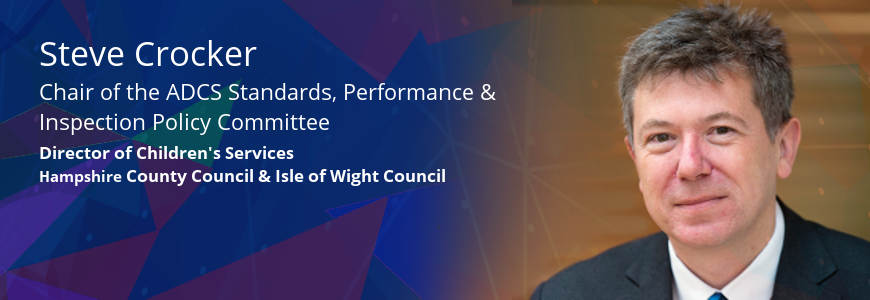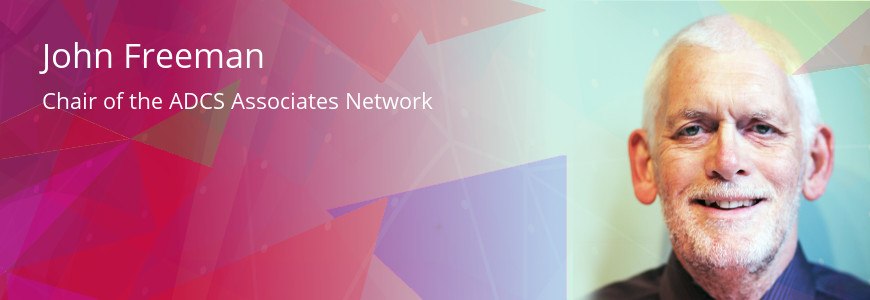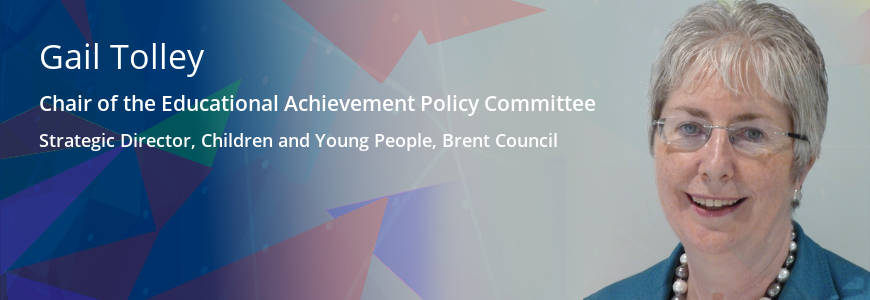Re-Affirming the Role of the Local Authority in Education

Education systems in England have changed radically over the past few years with a transformed role for local authorities (LAs), a more autonomous school system and a move towards sector-led school improvement. Many say that this shift heralds the end of the LA’s role in education, but they are misinformed. We continue to play a unique role in understanding and shaping arrangements to meet the holistic needs of our citizens – their employment, health, leisure, education and skills needs.
Education is the most important gift we can give to our children. It can empower them to become active participants in the transformation of their societies. Education is too important for society not to have robust accountability and an active voice in its design and delivery. I argue that a “Body” which is both local and which is accountable to its citizens, can offer the most appropriate leadership of an education system. In short, the LA.
So, whilst the role of the LA in today’s education system may have changed it is very much alive. LAs continue to:
- ensure that strategic coherence is in place which enables schools to collaborate and develop purposeful partnerships to improve the quality of teaching and learning
- build capacity across the education system so there is a willing, skilled and ambitious workforce to lead a sector-led model of school improvement
- champion the needs of vulnerable children and young people so there is an inclusive learning system for all
- commission home to school transport in an efficient way, promote appropriate independence for young people and support the wider transport networks so communities benefit
- ensure a sufficient supply of good education places including early education and child care and sufficient local provision for pupils with enhanced learning needs.
Ensure that strategic coherence is in place which enables schools to collaborate and develop purposeful partnerships to improve the quality of teaching and learning
Securing educational excellence for all in the current education system requires clarity. The school improvement space is complex with different forms of overlapping partnerships, networks and alliances. Beyond local education systems, we have seen new relationships develop, with regional schools commissioners, the Education Funding Agency and Ofsted’s regional offices. In this “busy” and crowded middle tier, relationships between schools, LA leaders and elected politicians are vital and this requires collaborative leadership. LAs need to embrace this space as their authorising environment and create new models, in partnership with others, which enables the key players to work towards shared strategic priorities to improve outcomes of local education systems and children’s life chances.
Build capacity across the education system so there is a willing, skilled and ambitious workforce to lead a sector-led model of school improvement
We know that a sustainable and effective education system must focus on building leadership capacity. Increasingly, we need more school leaders to lead not just one school or setting, but to lead across multiple organisations. Nurturing future system leaders must be a priority. We need leaders who can contribute to the education system through teaching schools, national leaders, local leaders, chief executives of multi-academy trusts etc. Good schools enable pupils and communities to thrive, so it follows that LAs would have a vested interest in enabling sufficient leadership capacity to create an effective education system. If LAs fail to grasp this space as their authorising environment, then who will seek to build and create capacity within a local area? In short, if not you, then who? This is not just about workforce development to attract new head teachers into a local area, this is about establishing clear expectations about what skills are needed in these crucial collaborative roles and explaining how local career paths will offer the routes to system leadership.
Champion the needs of vulnerable children and young people so there is an inclusive learning system for all
School improvement is more than just ensuring good quality teaching and learning is happening in a school. For pupils to be ready to learn, their wider welfare needs must be met if we are to support vulnerable children to achieve their aspirations, highly effective teaching isn’t enough. Vulnerable children need good teaching and wider support with strong relationships with key professionals to enable them to thrive.
Most schools are highly effective at supporting vulnerable learners to become confident individuals, effective communicators, successful and responsible citizens, to enable them to realise their ambitions. Unfortunately, too many children and young people, many with complex learning or health needs are unable to access appropriate, local education provision. The experiences described by too many families is that the education system is not always inclusive and is sometimes inflexible in meeting needs. I believe that the situation is being exacerbated due to ongoing education reforms which have increased competition, the current inspection regime and a curriculum offer which is driving exclusive practices. When you add in the growth in alternative provision free schools, surely it is time to take a radical look at how we can support all children, particularly the most vulnerable, to flourish in our education system, rather than to seek new ways to perpetrate exclusive practices.
LAs continue to have a range of statutory duties to champion the needs of vulnerable learners including maintaining education, health and care plans, educating those who are excluded from school and monitoring and tracking those who are missing education, to name a few. If LAs were out of the picture who would champion the needs of the most vulnerable?
Commission home to school transport in an efficient way, promote appropriate independence for young people and support the wider transport networks so communities benefit
LAs remain responsible for undertaking an assessment of the travel and transport needs of children and young people within the authority’s area and ensure a sustainable transport infrastructure so that the travel and transport needs of children and young people are best catered for. There has been no significant change with regard to school transport legislation for some time and the associated duties continue to rest with LAs. With the widening of the academies programme, the introduction of free schools and all schools now having the power to decide their session times, there is an increasing need for local stakeholders to work together in partnership to agree and deliver transport policies that meet the particular needs of their area.
Exclusive practices are putting further demands on transport budgets, but more concerning, is an increase in travel times for more and more vulnerable children. If learners can’t access local provision, they will inevitably need to travel greater distances to get to a school which can meet their needs. LAs have a key role in brokering a more inclusive system within their local area.
Ensure a sufficient supply of good education places including early education and child care and sufficient local provision for pupils with enhanced learning needs
Perhaps the most challenging aspect of our role is strategic place planning within the diverse and fragmented education system of the day coupled with a tighter resource envelope. We look back in envy at the days when we had a coherent school place planning strategy which made best use of the available resources. Those days are long gone! The years 2001 to 2011 saw the largest ten-year increase in the birth rate since the 1950s. Primary pupil numbers consequently surged by over 400,000 during the last Parliament; this bulge is beginning to feed through to secondary schools and there are not enough school places where they are needed at present.
Ensuring that the supply of school places meets demand is, and remains, a statutory duty of LAs and we must strive to do this in a way which promotes parental choice, diversity and fair access. However, LAs cannot require academies or free schools to expand, meaning that all other things being equal, demand for school places is likely to be met through the building of new free schools and the expansion of existing schools. So we are in an unenviable position: statutory duty to provide sufficient school places, no control over investment over free school or academy expansion and an insufficient capital grant from DfE in many areas. LAs know their local areas and can shape them. We may be between a rock and a hard place, but we have to keep on trying to address these challenges for the good of our local communities.
LAs continue to be responsible for funding their maintained schools and for agreeing the formula on which academies in their area are funded. With the level of national prescription on funding schools and the introduction of the “fairer funding formula”, we are at risk of being local offices for national government rather than influencing policy to meet the needs of our local communities. If this is the case, then I am pleased that this duty will be moving to Whitehall.
So yes, education systems in England have changed radically but the LA’s role in education is here to stay and more than ever, we must grasp the authorising environment so we can ensure the holistic needs of our citizens are met.
Related Blog Articles
When it was suggested to me that I put myself forward to chair the ‘spy...
In Inspection & Improvement
By the time that you read this, the machinery of ADCS will have worked its magic...
In General
The West Midlands ADCS has been quietly unifying over a small but significant...
In General
The National Children and Adult Services Conference 2019 opened on Wednesday 20...
In General
Yesterday, I was extremely proud to deliver my inaugural speech as ADCS...
In General
Every child deserves a happy, safe childhood and has a right to the best...
In General
As we come to the end of another academic year, I thought it was timely to focus...
In Education
We are coming to that time of year when letters to Father Christmas have been...
In General
Now that Parliament has risen and we are in the depths of the summer recess,...
In Education
I was inspired by the powerful insights provided by ADCS President Rachel...
In Education
Well, goodbye 2021, I can’t say that I am sad to see that year go. Indeed the...
In General
I expect people that know me well are thinking I would use this blog to make...
In Education
Last week I had the great privilege of delivering my inaugural speech as ADCS...
In General
Recently, I chaired the North West’s School Improvement Group and also led a...
In Education
As chair of the ADCS Educational Achievement Committee I was asked last week to...














